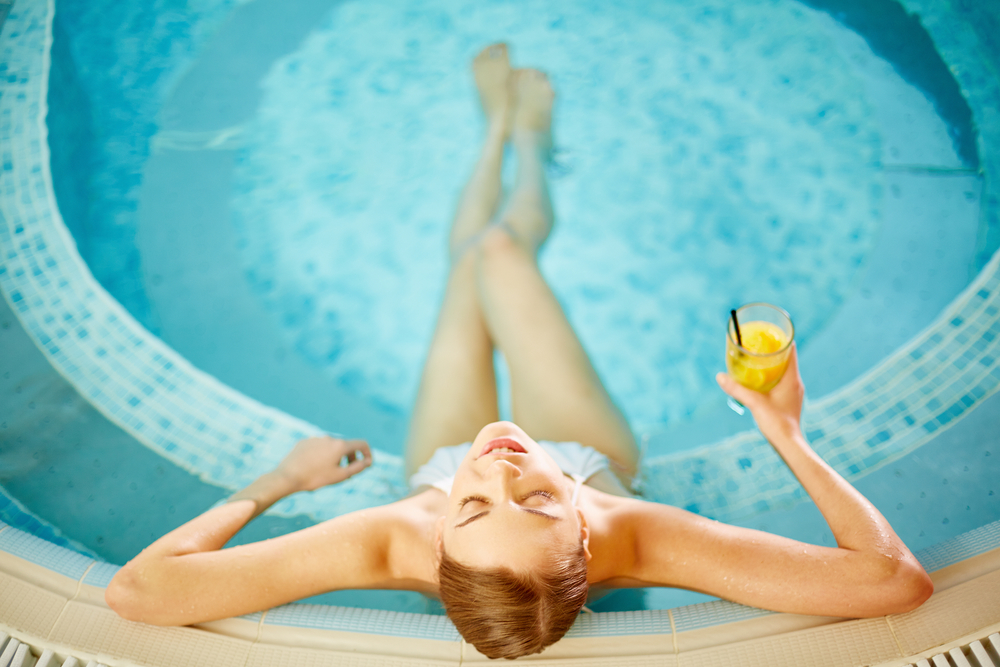Depending on where you live, you may think you’re all right with only being able to swim a short time of the year. Once you get your swimming pool, though, you will quickly realize there is no time that is too long to have a pool to swim in! To that end, you may want to treat your family to a swimming pool water heater this season! Even if you don’t want to swim longer than six or nine months of the year, there might be times during that time that the water is just a bit too chilly to comfortably enjoy.
Ask your trusted pool contractor about the benefits of installing a swimming pool heater and what the best type for your family. Here are the three types from which to choose:
- Gas
- Electric heat pump
- Solar
You can make an informed decision on the pool heater type once you understand their benefits and drawbacks — and each one has one or the other that may turn you toward it, or away from it.
Treat Your Family To A Swimming Pool Water Heater
When shopping for a swimming pool water heater you will hear the term, BTU (British Thermal Unit). What you need to know and understand is most pool heaters the BTUs range from 75,000 up to 450,000 — the higher the BTU the hotter the water and the quicker it will heat up.

Solar heaters draw power from the sun. The heater works by pumping water from the pool into the filter where some of the water is diverted to the solar collectors, heated then sent back into the swimming pool. When looking at solar pool heaters you will hear about glazed and unglazed collectors. The glazed collector is made with copper tubing on an aluminum plate; unglazed utilizes heavy duty rubber or plastic panels and an ultraviolet light inhibitor. Glazed collectors cost more but are more durable than unglazed collectors.
A solar heating system typically starts at $3,000 and higher to purchase and have installed. A solar professional will help determine the correct solar heater for your pool based on pool size and depth.
Solar pool heaters require collection panels and take up a lot of backyard space. It may be cost effective, but the size may be a factor.
The advantages of a solar heater include:
- Environmentally friendly
- The money you save in heating costs pays for the installation and purchase
- They use a free source of energy — the sun
- They last about two decades
The drawbacks are:
- The panels need to be placed where there is the most direct sunlight.
- They are pricey up front, but you will see an ROI
- They do not add to the aesthetics of your landscaping
A gas pool heater uses natural gas or propane. Whether you use natural gas or propane depends on its availability where you live. Natural gas and propane heaters cost essentially the same to purchase.
Gas heaters cost around $2,000 to $4,000 depending on the size and brand. It may cost you up to $500 per month in increased utility bills so budget for that.
Heater pros include:
- Relatively inexpensive to purchase
- It heats the water quickly
- Doesn’t rely on ambient temperatures
Gas heater cons are:
- It uses gas — a fossil fuel
- Can be costly to operate
- If there is no natural gas where you live you will have a propane tank installed and they are not usually attractive
- They are not environmentally friendly
Pool heat pumps warm the water using ambient air. To heat the water a fan draws in heat from outside (ambient) air, directs it to an evaporator coil and heats the water before returning it to the pool. Heat pumps cost more up front than gas pool heaters but are less expensive to operate. A heat pump will run about $2,000 and $3,500. If you want to keep your pool water at 80 degrees, you will pay about $1,500 in utility costs to heat the pool water annually.
The pros are:
- Inexpensive to operate
- Last for up to 20 years
- They are environmentally-friendly
- They are a viable option for solar heating
The cons include:
- You will have to run a 220V electrical outlet
- They don’t operate efficiently in cold temperatures
- They are slower to heat water than other types of heaters
Don’t jump into buying a pool water heater until you do your homework. Don’t buy a pool heater that is larger than you need because you won’t heat the water any more efficiently; in fact you will spend more money than necessary.
Enjoying the pool for as many months of the year as you can simply makes sense!

